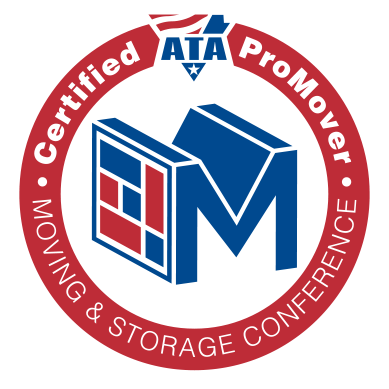
The pandemic has caused life-altering disruptions throwing supply chains into chaos around the world. And although we may be done with dealing with the pandemic, it certainly is not done with us.
The last two years have taught many organizations the importance of being nimble to adapt to changing circumstances, and in this new year, organizations will need to implement what they’ve learned to stay ahead of the new normal.
Disruption is Here to Stay
The pandemic has exposed several vulnerabilities in supply chains and its effects are seen across all sectors. From lengthy delays to backlogs at ports and driver shortages, no industry or country has gone untouched. In fact, according to Accenture, more than 90% of Fortune 1000 companies have reported disruptions due to COVID-19.
While the pandemic is an extreme example, disruptions come in all shapes and sizes – natural disasters, political uncertainty, economic crises and more can all contribute to disruptions that led to lasting supply chain woes.
The difficulties our world is facing now and for the foreseeable future has highlighted the importance of building a resilient supply chain, one that can adapt and overcome unexpected challenges. According to a recent report by Capgemini Research Institute, 62% of supply chain executives all agree that supply chain resilience is a key priority in the wake of the pandemic.
Building stronger supplier relationships and increasing transparency is critical to a successful supply chain and can help increase resilience and flexibility. Taking time to build direct connections with your suppliers not only increases trust but can be a powerful asset to your company when navigating unforeseen challenges.
Shifting Customer Expectations
Organizations were not the only ones forced to adapt. Over the last 19 months, customer expectations have shifted. From curbside pickups to contactless deliveries, consumers have new expectations, and they expect businesses to quickly adapt to meet their evolving needs.
Supply chain disruptions present problems for companies trying to provide the experience that customers expect. Businesses can no longer depend on having items in stock and must rely on quality customer service to differentiate themselves in the marketplace and meet customer needs.
Employee well-being has also come to the forefront of business priorities during this time. This last year, many organizations have seen record numbers of people leaving jobs in what has been dubbed the “Great Resignation.” Remote work opportunities and flexible work environments have given employees the power to vote with their feet and leave jobs that have left them dissatisfied.
Consumers on the other hand are holding companies accountable with their wallets. They also prioritize employee well-being and are choosing to do business with companies that align with their values and treat employees with respect. It’s no longer just about the product or service you sell, employee well-being and accountability are a top priority as we go into the new year.
The ability to quickly adjust to shifting customer expectations will be necessary in 2022. Boosting supply chain transparency and building strong supplier relations can help create and maintain a resilient supply chain that can meet ever-changing customer expectations.
Importance of Transparency
A key issue many organizations have faced is lack of visibility, not just in their own supply chains but into their supplier’s supply chains as well. Visibility is essential beyond knowing where your products are, having visibility into your partner’s supply chains can help you better understand who they are dependent on to work efficiently.
Increasing visibility in your supply chain starts with transparency. Taking the time to assess your entire supply chain is one great way to build transparency. Mapping out your full supply chain not only can help you better evaluate and understand your suppliers, but it can also help you identify any potential risks.
Mars Inc. has taken this approach with its suppliers to help them reach net-zero greenhouse gas emissions by 2050. Grant Reid, CEO of Mars Inc., explained to NPR that for the company to fully understand the effects of their products, they must map out not only their own supply chains but also their suppliers'.
It’s clear in today’s world that transparency is an essential tool in building a successful supply chain. Boosting supply chain transparency can help make data more readily available, connect multiple parties that lead to clearer and more effective communication.
Supplier Diversity is Crucial
Supplier diversity programs continue to become increasingly important in today’s world. Culture shifts and changing customer expectations are driving the need for diverse suppliers.
Implementing a supplier diversity program not only has the potential to influence how employees and customers perceive a company, but they also are an effective way to combat supply chain disruptions. According to a McKinsey report, diverse teams are better at anticipating shifts in consumer demand and often are more innovative and flexible. These strengths make diverse suppliers more resilient and partnering with them can boost your company’s bottom line.
Establishing a program allows businesses to make mindful, intentional choices that create space and opportunity for supplier diversity. Companies like Johnson & Johnson, Walmart and AT&T continue to invest and develop their supplier diversity programs. “Representation matters, so we operate from the perspective that our supply chain should be as diverse as our employee base and the customers we serve,” said Jalayna Bolden, Director, Supplier Diversity, AT&T Global Supply Chain.
Implementing a supplier diversity program ensures companies are accountable for their diversity, equity and inclusion (DEI) statements and encourages intentional investment that can have a lasting impact on the communities they serve. Learn how your organization can build an effective supplier diversity program.
Despite the overarching disruptions to supply chains around the globe, demand for certain products and services isn’t slowing down, and customers still have high expectations. Having a resilient supply chain that can adapt quickly and predict future challenges can position your company for success.
If you’re searching for a partner to support your corporate relocation and office move needs, Allied Van Lines can help move your business forward. As The Careful Movers, you can count on us for quality, consistency and a tailored moving experience that exceeds expectations. Increase your downline visibility and streamline all your corporate relocations under one contract with Allied. For more information, visit www.allied.com or contact your local Allied agent.
Allied Van Lines, The Careful Movers, supports local, long-distance and international moves — large and small — and is the largest mover network in the world. With over 90 years of experience, we’re here when you need us to ensure your company and your top talent move forward into the future, together. Learn more.


![shield [Converted] susan](https://corporate.allied.com/hubfs/susan.png)
![shield [Converted] move](https://corporate.allied.com/hubfs/move.png)

